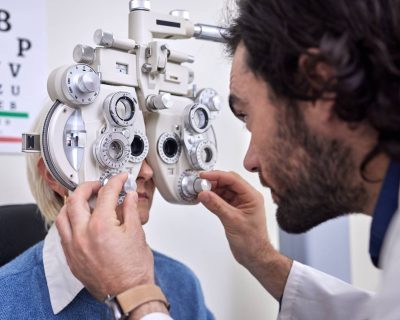
Can Stress Cause Vision Issues?
The importance of good vision cannot be overemphasized; that is why it is crucial to prevent anything that can damage or affect vision adversely. To avoid vision issues, optometrists have listed many causes for poor eyesight. The list of causes of vision issues is endless, but it is surprising to find stress among the causes. In view of this, many people ask if stress can cause vision issues and how.
Although stress and anxiety have somehow become a part of many people’s lifestyle, it should be noted that stress has significant impacts or effects on vision. The financial crisis, family problems, work challenges, and disappointments have all contributed to the spike in anxiety and stress levels experienced by many people, and these result in several health-related issues including vision issues. A good optometrist will advise patients to keep their stress levels low.
Ways by which stress can cause vision issues can be summed up into three categories:
1. Reduction in Oxygen Level
When the stress level increases, it also brings about a spike in adrenaline and cortisol. Unfortunately, many people most often unconsciously forget to breathe correctly, and this causes the level of oxygen being transported to vital blood cells in the brain and eyes to reduce drastically. Potential cell damage or death is imminent when the retina does not receive adequate oxygen. And this condition can cause vision issues or loss over time. However, do not wait for an optometrist to prescribe proper breathing before you keep the blood oxygen at an optimal level.
2. The Stress Hormone
Cortisol is a powerful hormone that gets released by the body in reaction to stress, and it is referred to as “The Stress Hormone.” It’s function is linked with increasing respiration, blood pressure, heart rate, and muscle tension. It also plays a prominent role in the regulation of the body’s reproductive and digestive systems during times of crisis.
An increase in cortisol level will, unavoidably, cause stress-related vision issues because it will disrupt the flow of blood from the eyes to the brain – the condition that is termed “stress-induced macular degeneration.”
3. Fight or Flight Hormone
Another hormone that gets released as the body responds to stress is adrenaline, which is called “The Fight or Flight Hormone.” When released by the body, adrenaline increases the heart rate with cortisol and cause blood flow to move from the “unneeded” reproductive and digestive systems to the vital internal organs considered to be in danger.
Adrenaline causes the pupils to dilate as it attempts to increase light flow into the eyes to detect potential threats quickly and easily. Frequent releases of adrenaline triggered by extreme stress levels will cause pupils to dilate consistently and result in light sensitivity, dry eyes, watery eyes, blurred vision, and eye strain.
About New Optical Palace
New Optical Palace is your Optician and Optometrist in the Kitchener and Waterloo Area. We offer eye exams for adults and children and a wide selection of prescription glasses for your prescription, contact lenses, and sunglasses.




